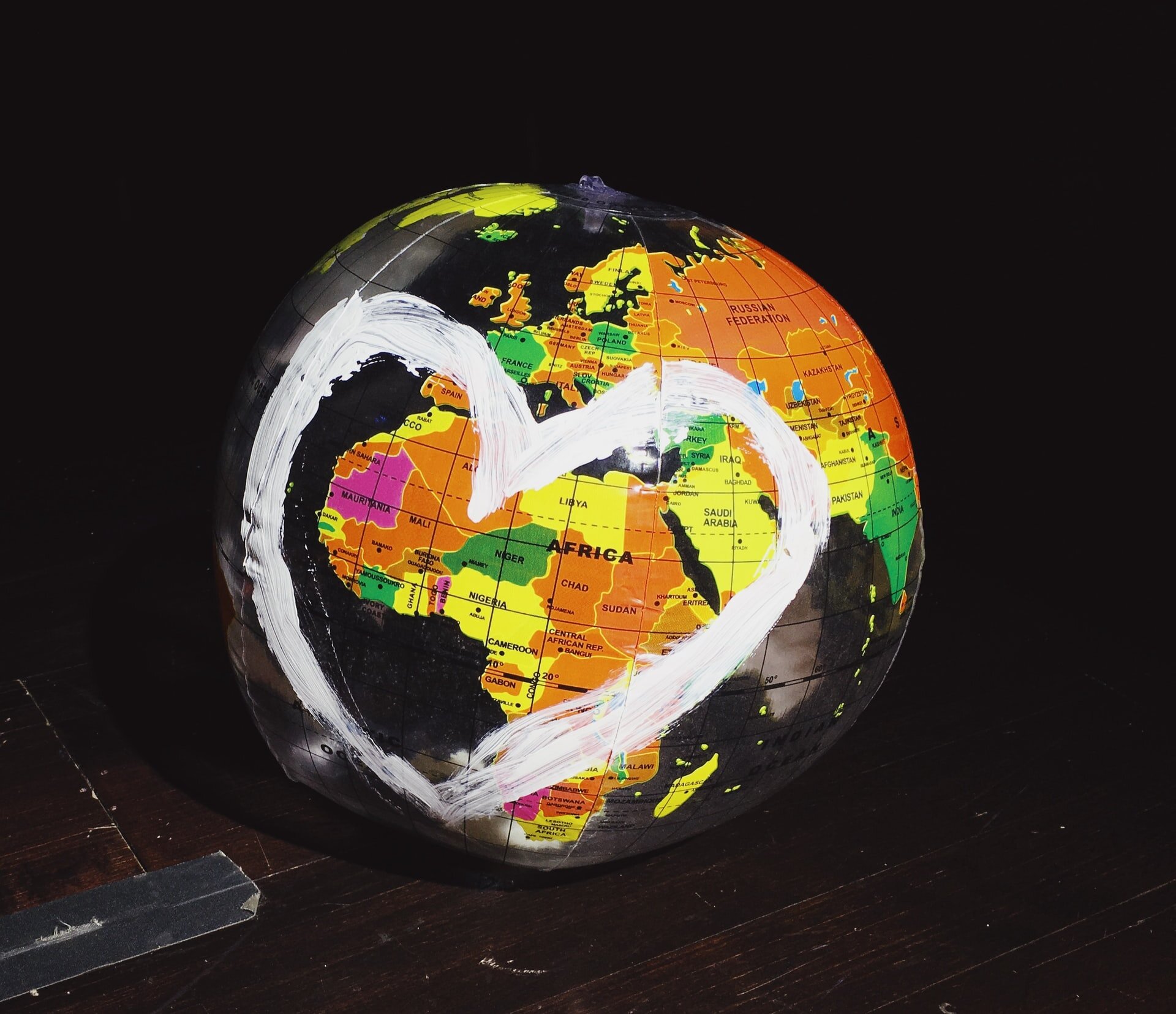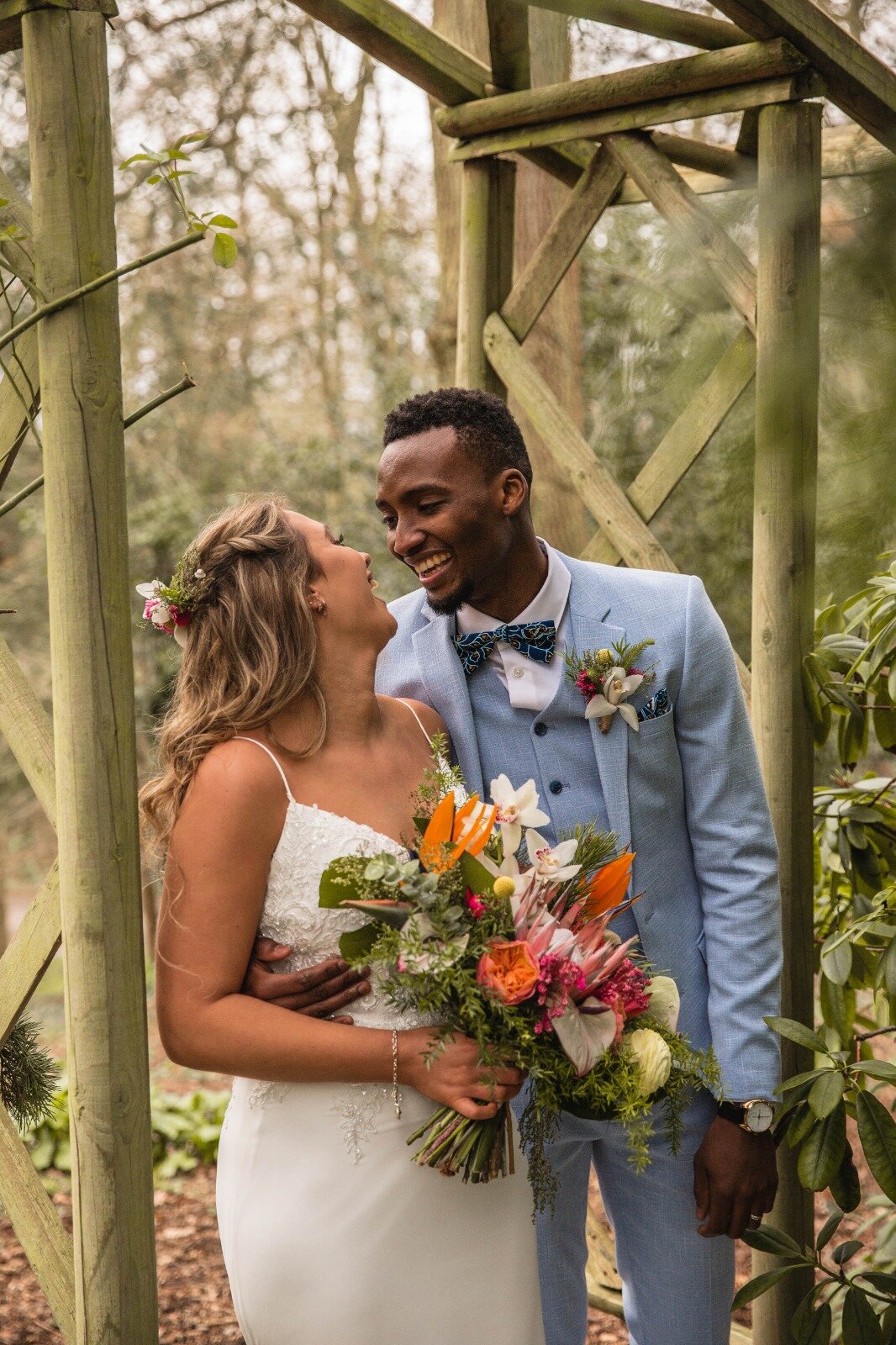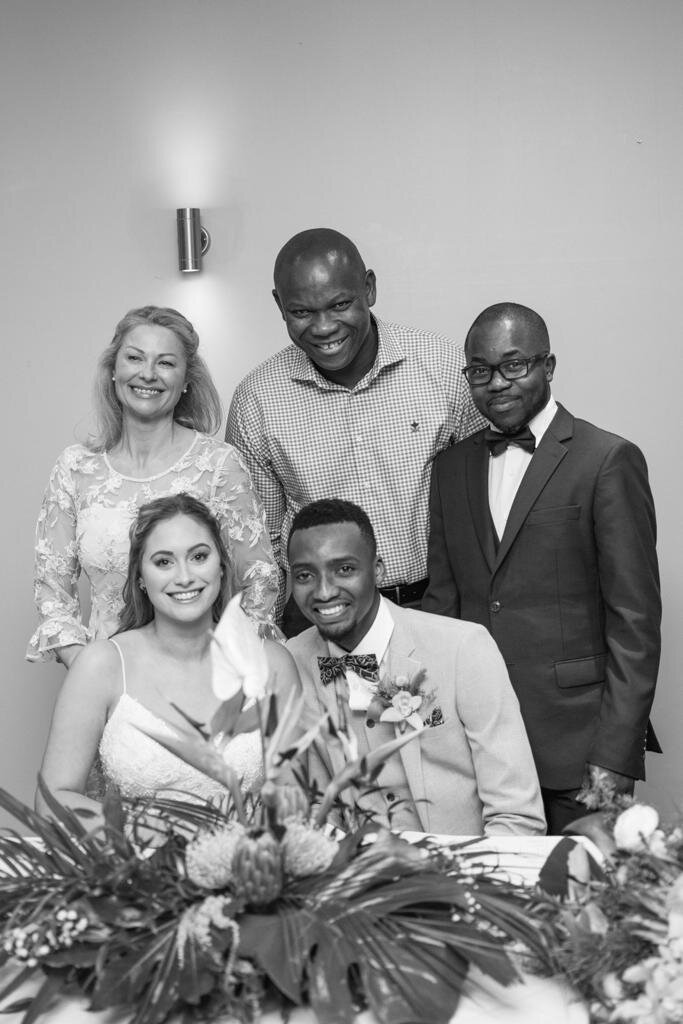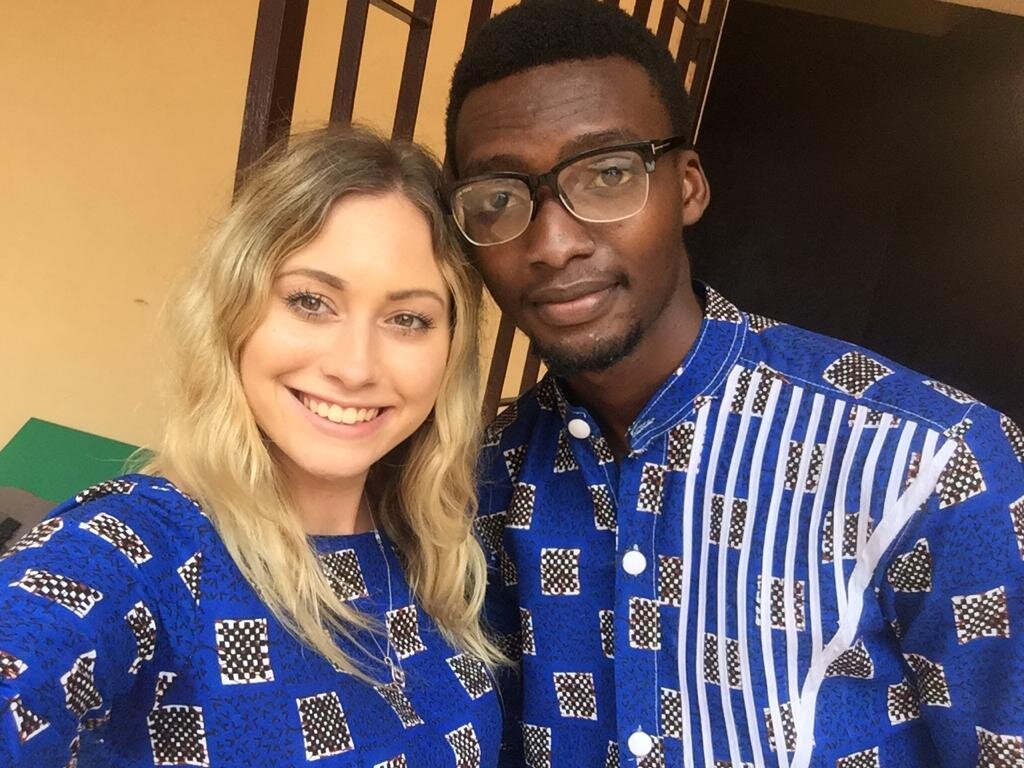Love without borders
I’d found the love of my life in Togo, West Africa, but from the start we faced restrictions, rules and reasonable doubts. Would it work out between us?
Exclusive | 4 min read | As told to Lucy Williamson
As the plane touched down in Togo, West Africa, a flutter of excitement and fear danced through my belly. Hours earlier, I’d left my unhappy life behind in the UK to spend three months teaching English to prisoners. My mum had labelled it my quarter-life crisis, but was it wrong to want more from my life? I’d felt shackled to a path I didn’t want to be on, miserable in my relationship and hating the slog of my 9-5.
What Mum deemed a crisis, I saw as a fresh start life. At 22, I believed I deserved more. And Togo was a different world.
Despite the distorted image of a broken and dangerous Africa we often see painted in the media, I quickly learnt it isn’t a continent full of criminal gangs in need of white saviours to rescue it from poverty.
Africa’s 54 countries were unique and vibrant, featuring beautiful languages, cultures, traditions, cities and people. Within days I fell in love with the resourceful, happy and welcoming community that took me in.
Across the dinner table one night, I noticed my co-worker, Michel, smiling at me. He seemed timid, but once he hit the dancefloor, it was as if his whole body and soul opened up. The way he moved to the pounding Afrobeats of Kontrol by Maleek Berry caught my attention – a complete antithesis to the British men I was used to seeing clinging to the walls in East London bars.
Intrigued by his confidence, I joined him. We laughed over my British dab, and moved our hips to the African beat.
Before I knew it, it was 2am and everyone else had gone to bed. As Michel walked me back to my room, our hands found one another, as if they’d always belonged together.
There were strict rules to avoid relationships with colleagues and neither of us wanted to cause any trouble, but I was as drawn to Michel as he was to me.
We met in secret. Every day, I’d get the bus home and then duck behind a palm tree where Michel would be waiting on his motorbike to whisk me away, a cloud of burnt orange earth rising up from the road behind us.
Good times
For the next three months, we spent every day together, lesson planning, sipping coconuts on the beach, dancing and eating fufu, a traditional West African dish. As Michel’s English improved, it exposed my lack of ability in both French and Togo’s indigenous language, Ewé. We acted out what we wanted to say like a game of charades, laughing at each other’s mispronunciations. When he said ‘Me Lonwo’ - ‘I love you’ in Ewé - I knew in my heart this was more than a holiday fling.
We said emotional goodbyes at Lomé airport three months later and I returned home to my family’s Hertfordshire home. I felt bereft, but without any communication from Michel, my parents, who’d been surprised to hear the strength of my feelings for a man I’d met ‘on holiday’, told me to forget him.
After a week, my phone finally rang. It was Togo, who frantically explained the Government had cut all telecommunications to curb violent protests. Michel had driven hours to the Ghana border to ring me.
If a man was prepared to travel to a different country to avoid ghosting me, then surely I was onto a winner. I didn’t know what the future held for us, but I knew I was going to give our relationship my all.
Long distance
For the next two years we travelled between the UK and Togo. I worked three jobs, seven days a week to pay for flights and Michel’s visas. I showed him my favourite places in the UK, just as he had for me in Togo. We went to Afrobeat clubs in London, sat on rooftop bars and he experienced his first Christmas in a cold climate.
Michel taught me to take each day as it comes, encouraging me to let go of my British pessimism and not worry so much about the little things.
My friends and family adored him as much as I did - especially my brother with whom he bonded instantly over a shared love of dancing.
Others weren’t as accepting. People questioned Michel’s intentions and ridiculed our hopes of getting Michel a permanent visa. Despite Michel’s endearing efforts to make a good impression, the harsh comments came thick and fast.
Can’t you get a boyfriend that doesn’t come with all this baggage?
You’re so young, why are you putting this burden on yourself?
His visa will get rejected, you’re wasting your time.
I smarted at it all. Michel wasn’t a ‘burden,’ he was a caring man who’d made my life even brighter than the vivid patterned fabrics he wore. But eventually we hit a roadblock. As someone from outside the EU who didn’t qualify as a skilled worker, Michel had exhausted his options for temporary visas.
I’d come home to find him laying on the sofa in the same spot I’d left him in that morning. His inability to work in the UK and the time alone was making him sink into depression.
Meanwhile, the pressure of financing two people’s lives was getting to me. I was working long hours and constantly trawling the UK immigration website trying to find a solution.
Under strain
This claustrophobic and exhausting reality was far from the rosy picture of star-crossed lovers I painted on my Instagram feed. While our cultural differences previously had enhanced our lives together, they now exposed and divided us.
Yet, our best option was to get engaged. Michel would then need to return to Togo and apply for a fiancé visa from there. He thought I was trying to get rid of him because I didn’t love him anymore. It wasn’t true, of course, but Michel wasn’t the same contagiously energetic and positive man I had shared a dancefloor with two summers earlier.
We talked for hours and eventually agreed to apply for a special circumstances visa that would let Michel stay in the UK, citing the political unrest in Togo. It cost £2,500 and after a seven month wait, was declined. Michel left the UK a week later.
I wasn’t going to give up. Marriage was the only way we could be together and where our relationship was naturally headed anyway. Still, I hated how transactional it all felt. I spent weeks gathering bank statements, pictures, even screenshots of our WhatsApp conversations, all to be analysed by the authorities to decide whether our relationship was ‘meaningful’. I duly enclosed another cheque for £2500.
The process felt never-ending but I had to see the relationship through.
I came out of a work meeting one afternoon to find a picture message on my phone from Miche and opened it with shaking hands. There, stamped in Michel’s passport was a fiancé visa stamped in bright purple ink. Underneath, Michel had written, we did it!
We were both delirious with joy.
A bright future
We married in February 2020, a wonderful blend of our cultures. Michel’s uncle and best friend flew over our families joined us on the dancefloor at the end of the night to groove to Togolese music. Not everyone in my family has been supportive but for those that have, the wedding brought us even closer.
Michel has now been granted a spousal visa, which allows him to work here until he can apply for permanent residency. He hopes to become an NHS paramedic.
We learn new things about each other every day and are relishing our new-found domestic simplicity. After the last three years, I think we’ve earned it.
Michel Epey, 27, told Lacuna Voices:
When I first came here, people thought that I must have an ulterior motive and that my relationship with Georgia couldn’t be true love. But until I met her, I had no intention to move to the UK. Togo was my home for 24 years and my whole life and family remain there.
But wherever your heart is, that’s your home. Now, the UK is where I want to spend my life with Georgia, make plans together, work and have children. It’s been tough but our futures will now be together.
*Follow Georgie and Michel on Instagram @mrandmrsepey
Like this article? Please help us commission more like it by donating the cost of a cuppa on Ko-fi. Sharing this article on your social media, and following us on Instagram, Facebook, and Twitter are also a great way to support our independent, self-funded platform.
We encourage debate, but trolls are not welcome. Please read our comments policy before contributing.








